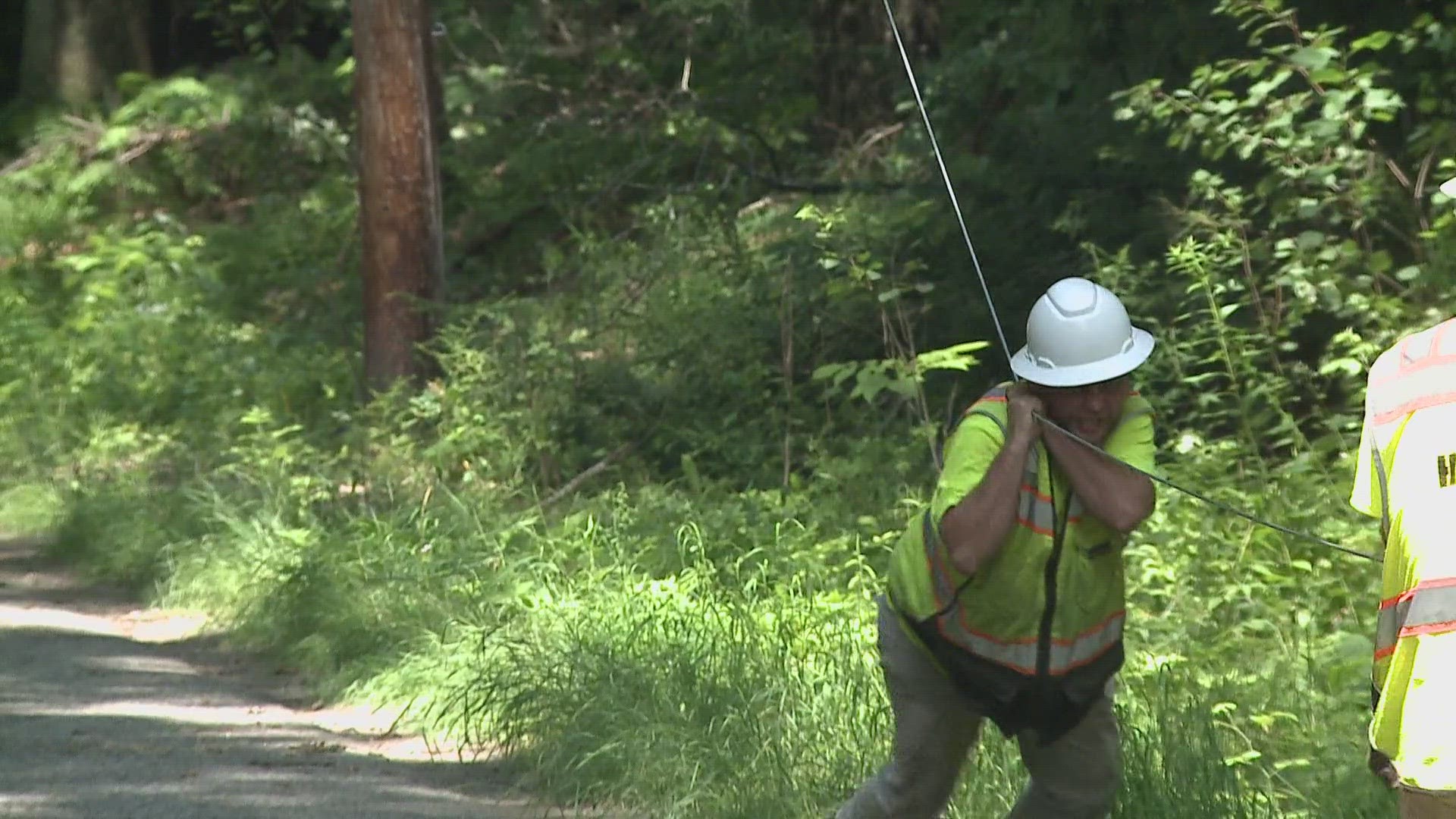JEFFERSON, Maine — On a side road barely wide enough for two cars to pass, a crew with a bucket truck was preparing to string fiber-optic cable. It’s the crucial step to bring high speed internet to hundreds of homes in Jefferson.
It's seen by the head of Maine's statewide broadband agency as an example of the kind of work needed in many parts of Maine to bring broadband to all.
"This is a perfect example of the kind of partnerships we are hoping to advance across the state to meet that connectivity goal," Andrew Butcher, president of the Maine Connectivity Authority, said.
For Jefferson, the project really began several years ago when the town broadband committee was developing plans.
"It’s a critical need for the town," Diana Sommers, chair of that committee, said. "We had over half the people in town didn’t have access to high-speed internet."
The committee worked with LCI Fiber Optic to develop the details of the plan, and when federal grant money became available in 2021, they went for it. LCI and Jefferson were selected for the project which will total more than $3.5 million. Most of the money comes from the grant, while LCI will invest $350,000 of its own.
The stated goal of the project is to bring high-speed internet to 525 homes in town that are considered "unserved" because internet is either unavailable from other sources or is far below the state's standard for 100 MB upload and download speeds.
But LCI's Alan Hinsey says the 70 miles of fiber-optic cable they need to run to serve those homes will also put fiber in front of many other homes and businesses, meaning the impact of the project could be greater than the grant required.
"At least three-quarters of the town will have access to fiber when we’re done," Hinsey said.
Some of those already connected to the new service praised it, including Nancy and Bob Heinlein, who had been depending on satellite for internet.
"It's fast, very fast, much better than the satellite we had before, especially in bad weather," said Bob Heinlein.
Sommers predicted improved internet service will be a long-term boost to the town, potentially helping attract new residents.
"One of the things we heard at the town office was people looking to move to Jefferson, 'What do you have for internet?' Well, it depends where you live."
Maine recently learned the state will receive more than $270 million in added federal funds for broadband expansion, on top of more than $150 million already allocated under federal COVID relief programs. Those funds are said to be disbursed to projects over the next several years, and those communities with the best preparation and planning, and partnerships with fiber providers, will have an advantage over those starting from scratch.
"It’s a significant investment for a private company to make," Butcher said. "And if there's a town or collection of towns that has a well-organized set of individuals who represent a demand, that’s where the private investment is going to end up."
For LCI—which says it has already signed up more than 200 homes in the town—it's also a chance to promote the wider range of services made possible by fiber optic technology.
"Internet is just part of it," LCI vice president Randall Manning said.
He said the capacity of fiber optic lines to carry far more data means they can also be used for delivering some medical services, monitoring older Mainers in their homes, enhancing education, and connecting government, nonprofit organizations, or even businesses to enhance their services.
"We want every community to understand that, and work together to take advantage of that, to be able to use that robust bandwidth we are installing to do so much more," Manning said.

